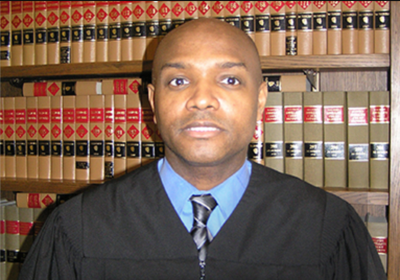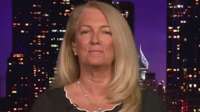
Illinois Appellate Justice Carl A. Walker
CHICAGO - Trucking brokers can’t rely on seeming protection under a federal law to shield themselves from lawsuits in Illinois state court over traffic deaths allegedly caused by truck drivers they may hire, an Illinois state appeals court has ruled.
In the ruling, a three-justice panel of the Illinois First District Appellate Court said an exemption in the Federal Aviation Administration Act short-circuits protections that would otherwise appear to wall them off from lawsuits.
The decision arose as the latest step in a lawsuit, filed in Cook County Circuit Court, over a September 2021 crash in Lincoln, Neb., that killed Mark Kaipust and his daughter, Taylor. Wife and mother Jamie Kaipust sued Echo Global Logistics, among other defendants, alleging Echo was an “authorized transportation broker” that contracted with Critical Supply Solutions, the carrier that employed the truck driver who was driving from Iowa to California at the time of the collision.
Echo moved to dismiss Kaipust’s claim for negligent selection of an independent contractor, arguing the Federal Aviation Administration Act pre-empted a state law negligence claim through a clause holding “a state may not enact or enforce a law, regulation or other provision having the force and effect of law related to a price, route or service of any motor carrier or any motor private carrier, broker or freight forwarder with respect to the transportation of property.”
Kaipust countered by contending the pre-emption clause applies only to economic regulations and noting a clause in the law allowing states to enforce laws that implicate motor vehicle safety regulations.
In November 2023, Cook County Circuit Court Judge Scott McKenna denied Echo’s motion to dismiss the complaint. The following February he denied Echo’s motion to reconsider but did agree to certify questions for the Illinois First District Court of Appeals: Whether the FAAA Act pre-empts hiring claims against brokers in personal injury suits and, if so, does a “safety exception” apply?
Justice Carl Walker wrote the panel’s opinion, filed Aug. 15; Justices Sanjay Tailor and Michael Hyman concurred.
“The pre-emption clause, given its plain and ordinary meaning, preempts state law negligence claims for negligent selection against trucking broker services,” Walker wrote. “The primary ‘service’ a trucking broker provides is the selection of a trucking company to transport the load at issue. Thus, claims based on how the broker performed that task are necessarily ‘related to’ the ‘service’ of a trucking broker.”
Walker noted that although some federal appeals panels have found the state-law safety exception doesn’t cover negligent brokering claims, the relevant decisions didn’t consider a matter with a direct link to motor vehicle safety. But other federal appellate rulings did endorse the exception with a general connection to promoting road safety. There is no precedent in Illinois law, Walker said.
“There is no doubt that the preemption clause by its express language applies to many areas that do not implicate state police powers, like attempted regulation of the prices brokers charge,” Walker wrote. “But it contains no corresponding directive to preempt provisions for the public safety, and given that absence, courts should defer to the presumption that Congress did not intend such displacement of state law in this area. Second, it is highly unlikely Congress intended to permit brokers to act as negligently as they see fit, with no redress for an injured party, without making this intent clear on the statute’s face.”
The panel further said it appears Congress wrote the FAAA Act, like the preceding Airline Deregulation Act, because of economic regulations that vary from state to state, concerns that are distinct from “the general duty to act with reasonable care.”
A key phrase in the safety exemption, according to the panel, is “safety regulatory authority with respect to motor vehicles.” That means the question isn’t if a regulation is directly or indirectly related to motorized vehicles in general, but specifically to safety.
“Though the brokers themselves do not employ the drivers or own the trucks, they are directly responsible for the presence of a truck on a road within the state,” Walker wrote. “If the broker did not perform its service, then the trucking company would not have provided the truck and driver to haul the load in question. Given these realities, there is no gap between the service the broker provides and the presence of the truck (the motor vehicle) on the state’s roads.”
Walker further said arguments about what role brokers have in operating trucks or hiring drivers speak to proximate cause and not the present question of whether claims like Kaipust’s can advance past a dismissal motion or a request for summary judgment. He also rejected Echo’s concerns about “brokers” being specifically listed in the pre-emption clause but not the safety exemption.
“Congress did not purposefully omit certain parties to exclude them from the safety exception; it omitted any reference to any parties because the exception applies to the conduct of anyone, so long as such conduct falls under the ‘safety regulatory authority of a state with respect to motor vehicles,’ ” Walker wrote. “The safety regulatory authority of a state encompasses broader conduct than just that referenced in the preemption clause, and thus the absence of ‘brokers’ or any other set of actors in the exception does not limit the safety exception’s application to any particular set of actors.”
Echo is represented by attorneys with the firm of Floyd Zadkovich, of Chicago.
Kaipust is represented by attorneys with the firms of Whiting Law Group, Chicago; Darrin Walker, of Kingwood, Texas; Penn Law Firm, of Jacksonville, Texas; and Penn, Kestner & McEwen, of Inver Grove, Minn.
Support briefs for Echo came from C.H. Robinson Worldwide, through Canty Novy Bertkau Gordon, of Chicago; and the Institute for Safer Trucking, for Aleksy Belcher.






